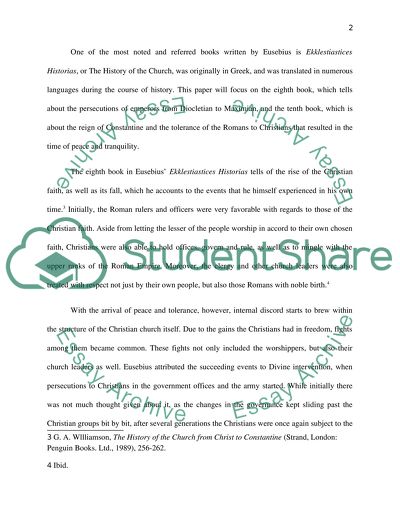Cite this document
(“Eusebius and the History of the Church Term Paper”, n.d.)
Retrieved from https://studentshare.org/religion-and-theology/1453698-eusebius
Retrieved from https://studentshare.org/religion-and-theology/1453698-eusebius
(Eusebius and the History of the Church Term Paper)
https://studentshare.org/religion-and-theology/1453698-eusebius.
https://studentshare.org/religion-and-theology/1453698-eusebius.
“Eusebius and the History of the Church Term Paper”, n.d. https://studentshare.org/religion-and-theology/1453698-eusebius.


